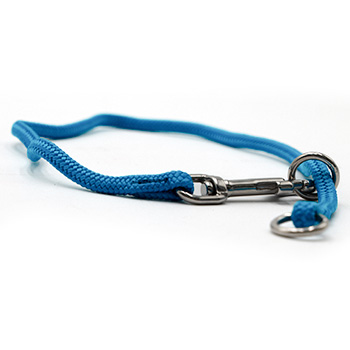September 01, 2025
My 2 year old Rottweiler is in training to be my service dog and until recently I could take him anywhere. He has started to bark at people in my office and has growled and lunged at a server in a restaurant. I don't understand the change in his behavior. Please advise!
Full Question:
I have a 2 year old Rottie. He is being trained to be my service dog for PTSD. He has been going with me to work and everywhere since he was 6 months. He has been in professional training since 3 months old, first in basic, then advance, has his CGC and is ready to start the disability training. I could take him anywhere. He would just lay down, and people didn't even know he was there. He has started to bark at people in my office, especially when they rise to leave. I used to take him to restaurants, and again, he would be under the table and no one would even know. Now he has started to growl and one time lunged at a server. I can still take him to stores, no issues. On walks, no issues with people or dogs. However, I have started to feel apprehensive about him in stores and I fear he will clue in on my apprehension and react. If people come into my home, he is happy, and would most likely show them where the jewelry is! I just don't understand the switch. Please advise. Thank you! 
 Cindy's Answer:
Cindy's Answer:
I would first rule out any health or pain issues (joint pain, Lyme disease, etc) If he gets a clean bill of health it could be that he is simply becoming more discriminatory about strangers as he reaches maturity. The behavior he is showing is not unusual or surprising for a Rottweiler or any working breed dog who is becoming a mature adult.
My parents raised Rottweilers and we often saw big changes in behavior around the 2-3 year old mark, especially in the males. Unfortunately, not all dogs make the cut as a public access service dog, and as a strong working/guarding breed, much of what he will have to tolerate goes against his genetics. There is a reason that Labs and Golden Retrievers are used a lot for service work, they don't have the strong guarding and suspicion instincts that the herding and working breeds do.
I'd make sure he gets a thorough physical, and if you haven't had his hips, elbows and spine xrayed that would be something to consider as well as a tick-borne disease panel. Dogs can hide pain or illness and often the only symptom at first is a behavior change.
My parents raised Rottweilers and we often saw big changes in behavior around the 2-3 year old mark, especially in the males. Unfortunately, not all dogs make the cut as a public access service dog, and as a strong working/guarding breed, much of what he will have to tolerate goes against his genetics. There is a reason that Labs and Golden Retrievers are used a lot for service work, they don't have the strong guarding and suspicion instincts that the herding and working breeds do.
I'd make sure he gets a thorough physical, and if you haven't had his hips, elbows and spine xrayed that would be something to consider as well as a tick-borne disease panel. Dogs can hide pain or illness and often the only symptom at first is a behavior change.
No ratings yet
Was this Q&A helpful? Let us know!


Can't find what you're looking for?








